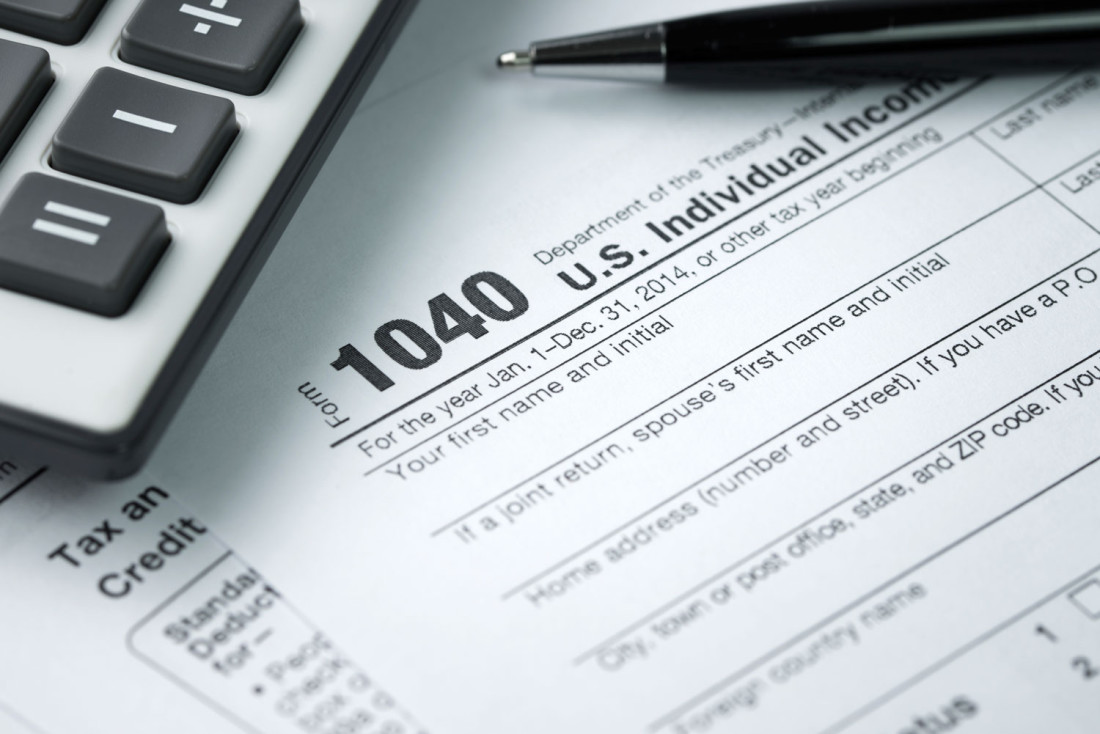
About This Blog
Noonan’s Notes Blog is written by a team of Hodgson Russ tax attorneys led by the blog’s namesake, Tim Noonan. Noonan’s Notes Blog regularly provides analysis of and commentary on developments in the world of New York and multistate tax law. Noonan's Notes Blog is a winner of CreditDonkey's Best Tax Blogs Award 2017.
Contributors
Timothy Noonan
Brandon Bourg
Mario Caito
Ariele Doolittle
Joseph Endres
Daniel Kelly
Elizabeth Pascal
Emma Savino
Joseph Tantillo
Craig Reilly
Andrew Wright
Stay Connected
Showing 23 posts from 2015.
What About New York State’s Federal Tax Audits?
 A noteworthy determination was issued earlier this month by one of the Division of Tax Appeals’ administrative law judges. Judge Bennett found in Matter of Chery that the Division of Taxation improperly denied the petitioning taxpayer’s status as a real estate professional, as reported on his federal income tax return. Consequently, the taxpayer was entitled to claim Schedule E rental losses from two rental properties – not only on his federal return, but on his New York State return as well.
A noteworthy determination was issued earlier this month by one of the Division of Tax Appeals’ administrative law judges. Judge Bennett found in Matter of Chery that the Division of Taxation improperly denied the petitioning taxpayer’s status as a real estate professional, as reported on his federal income tax return. Consequently, the taxpayer was entitled to claim Schedule E rental losses from two rental properties – not only on his federal return, but on his New York State return as well.
This case highlights some of the hazards of a trend we’re seeing with increasing frequency: the New York State Tax Department conducting audits focused on taxpayers’ federal income tax returns. This case and others beg the question: to what extent, if any, should New York State auditors be auditing federal tax returns?
Owe Federal Taxes? Your U.S. Passport Could Get Yanked
 If you have fallen behind with the Internal Revenue Service, you now have a new concern to keep you up at night. In addition to penalties, interest, liens, and levies, under a new federal act just signed into law on December 4, 2015, the State Department could soon revoke your U.S. passport.
If you have fallen behind with the Internal Revenue Service, you now have a new concern to keep you up at night. In addition to penalties, interest, liens, and levies, under a new federal act just signed into law on December 4, 2015, the State Department could soon revoke your U.S. passport.
Congress enacted the “Fix America’s Surface Transportation Act” (FAST Act) in order to provide funds for roads, bridges, railroads, and transit systems. Buried within the FAST Act’s 490 pages, available here, though, is a provision amending the Internal Revenue Code to add a new Section 7345, authorizing the revocation or denial of a passport for “seriously delinquent” unpaid taxes.
Upcoming Abandoned Property Deadlines
Just a friendly reminder that the first deadline for New York’s annual abandoned property due diligence mailings is quickly approaching. Here’s a quick recap of the deadlines and the rules governing New York’s abandoned property law.
If you’re a holder of abandoned property, you must file an annual report detailing the property and must remit the property to the state. A “holder” of abandoned property is any organization that possesses property legally owned by another. Most businesses hold some form of abandoned property whether they know it or not.
Allocation, Due Diligence, and More Record Keeping! New Draft Regulations on New York State’s Corporate Income Tax Allocation

2014 brought significant corporate income tax reform to New York State. This year, 2015, followed suit and brought many of those same corporate income tax reforms to New York City. To quote Donald Trump, these reforms are “HUUUUUUUUUGE,” and corporate taxpayers and tax practitioners need to take note. You can read some of our prior coverage here and here.
Among the most significant changes—and there were many—are the reforms to the methods of allocating business income. The Empire State and the Big Apple have shifted to customer-based sourcing for most types of receipts, including receipts from digital products, miscellaneous services, and other business activities. Further, both the state and city have created analytical cascades (referred to below as the “waterfall approach”) to determine the location of the customers and have imposed new “due diligence” standards on corporate taxpayers with respect to the application of each stage of the waterfall approach to the various categories of receipts. And the state has just issued draft regulations. So, not only are there new allocation rules to understand and follow, but there are also new rules regulating “how” taxpayers must comply with those new rules.
By the Numbers: The Annual Report of the Division of Tax Appeals and Tax Appeals Tribunal
 Earlier this month, the Annual Report of the New York State Division of Tax Appeals and Tax Appeals Tribunal for fiscal 2014-15 was submitted to the governor and the heads of the Senate and Assembly. Last year, we offered our analysis of the report for fiscal 2013-14. Keeping with that tradition, there are a few things to note about this year’s report.
Earlier this month, the Annual Report of the New York State Division of Tax Appeals and Tax Appeals Tribunal for fiscal 2014-15 was submitted to the governor and the heads of the Senate and Assembly. Last year, we offered our analysis of the report for fiscal 2013-14. Keeping with that tradition, there are a few things to note about this year’s report.
First and foremost: according to the numbers, it is getting tougher to win. Considerably tougher, actually. Here’s the analysis of Administrative Law Judge determinations from this year’s report, as compared to the numbers in the two prior years:
Beyond the Clouds: Important Sales Tax Considerations for Web-Hosting Providers and Co-Location Facilities
 Most people’s understanding of the Internet extends about as far as their eyes can see. In other words, they know that if they type a few words into the little white box beneath the colorful Google logo, within a fraction of seconds, hundreds of thousands of (hopefully) helpful results will appear on the screen. And that’s awesome. But few people, myself included, fully understand what takes place beyond the keyboards, screens, and cords. In fact, many people are likely willfully blind to the back-end operations of the Internet.
Most people’s understanding of the Internet extends about as far as their eyes can see. In other words, they know that if they type a few words into the little white box beneath the colorful Google logo, within a fraction of seconds, hundreds of thousands of (hopefully) helpful results will appear on the screen. And that’s awesome. But few people, myself included, fully understand what takes place beyond the keyboards, screens, and cords. In fact, many people are likely willfully blind to the back-end operations of the Internet.
Another Significant Development in the Statutory Residency Area!
 There are always “traps” in the tax law, where taxpayers unwittingly walk into a tax problem that they didn’t see coming. In the residency area, some taxpayers often got trapped on a move-in or move-out situation, with the Tax Department taking the position that “statutory residency” trumps “domicile.” Thus, a taxpayer who didn’t move into New York until, say, August of a particular tax year still could be taxed as a full-year resident if he or she ran afoul of New York’s statutory residency test (i.e., the taxpayer maintained a permanent place of abode for almost the whole year and spent more than 183 days in the state). Indeed, the Nonresident Audit Guidelines (see page 64) contained a whole section about this.
There are always “traps” in the tax law, where taxpayers unwittingly walk into a tax problem that they didn’t see coming. In the residency area, some taxpayers often got trapped on a move-in or move-out situation, with the Tax Department taking the position that “statutory residency” trumps “domicile.” Thus, a taxpayer who didn’t move into New York until, say, August of a particular tax year still could be taxed as a full-year resident if he or she ran afoul of New York’s statutory residency test (i.e., the taxpayer maintained a permanent place of abode for almost the whole year and spent more than 183 days in the state). Indeed, the Nonresident Audit Guidelines (see page 64) contained a whole section about this.
Guess what? We may have closed this trap!
Hard Hats Required: Sales Taxes & Capital Improvements - Some Practical Pointers
 We recently authored an article in State Tax Notes analyzing New York’s complicated rules affecting sales taxation of contractor services and capital improvements. In this follow-up post, we want to highlight a few practical problems and issues that taxpayers frequently confront by taking a look at several recently litigated cases involving capital improvements.
We recently authored an article in State Tax Notes analyzing New York’s complicated rules affecting sales taxation of contractor services and capital improvements. In this follow-up post, we want to highlight a few practical problems and issues that taxpayers frequently confront by taking a look at several recently litigated cases involving capital improvements.
Businesses become entangled in these rules quite often. The rules themselves are complicated, and the answer to the question “Is this subject to tax?” nearly always depends upon the specific facts. For anyone who is sitting down to perform a client’s or company’s weekly bookkeeping or, worse, for those who are facing an audit, we can draw a few useful lessons by looking at the recent misfortune of others. A quick survey reveals that, so far this year, at least four different cases involving claims of capital improvements went all the way to trial and were litigated in New York. In each case the auditor – not the taxpayer – won. Let’s take a quick peek at these cases to see why.
What’s So Interesting About Interest Rates?
 For those of us who regularly handle state audits, the focus is usually on the legal or factual arguments as to why no additional taxes are due. And it’s great when our clients can walk away with no additional taxes to pay. But in many cases, a “win” means negotiating a reasonable settlement of a difficult issue. In those cases, the final bill can come as a shock to taxpayers, once interest is included. Particularly with interest rates at historical lows, we expect those low rates to carry over to our tax bills. For the IRS and states that base their interest rate on the federal short-term rate or a similar metric, that’s true. The current IRS interest rate on individual underpayments and overpayments is 3%—not so bad.
For those of us who regularly handle state audits, the focus is usually on the legal or factual arguments as to why no additional taxes are due. And it’s great when our clients can walk away with no additional taxes to pay. But in many cases, a “win” means negotiating a reasonable settlement of a difficult issue. In those cases, the final bill can come as a shock to taxpayers, once interest is included. Particularly with interest rates at historical lows, we expect those low rates to carry over to our tax bills. For the IRS and states that base their interest rate on the federal short-term rate or a similar metric, that’s true. The current IRS interest rate on individual underpayments and overpayments is 3%—not so bad.
But states are by no means required to follow the IRS on interest rates, although quite a few do. Some states may start with the IRS underpayment rate but then tack on a few percentage points (e.g. Virginia adds 2%). Other states, such as North Carolina (5%), Kansas (4%), Michigan (4.25%), and Oregon (4%), also keep their rates in line with overall interest rates.
Out-of-State Attorney Not Subject to New York State Income Tax
https://www.hodgsonruss.com/practices-State_Local_Tax.html We have all heard the jokes. “How many lawyers does it take to screw in a light bulb?” “Why won’t sharks attack lawyers?” “What’s the difference between an accountant and a lawyer?” Or, “How many lawyer jokes are there?” Well, actually, the last one’s easy. Only three. The rest are true stories.
We have all heard the jokes. “How many lawyers does it take to screw in a light bulb?” “Why won’t sharks attack lawyers?” “What’s the difference between an accountant and a lawyer?” Or, “How many lawyer jokes are there?” Well, actually, the last one’s easy. Only three. The rest are true stories.
But despite the general public’s lampooning of attorneys, New York State taxpayers might have found a lawyer they can celebrate (in addition, of course, to their friends at Hodgson Russ). Meet Patrick J. Carr, a retired New York State attorney living in Florida. Last month, a state administrative law judge (ALJ) ruled that Mr. Carr did not have to pay a $68,000 tax bill for services rendered in Florida. Mr. Carr was a member of the New York and New Jersey state bars and was admitted pro hac vice in Florida (for non-lawyer readers, “pro hac vice” is a fancy Latin way of saying that an attorney who has not been admitted to practice in a certain jurisdiction is permitted to help litigate a particular case in that state). And although Mr. Carr did not perform any services or maintain any office in the state, New York attempted to tax his income solely because of his New York law license. Are you starting to root for Mr. Carr? Thankfully, however, ALJ Barbara Russo dismissed the state’s position and announced that “merely holding a license to practice in New York is not the equivalent of carrying on a profession in New York state.” So why did New York think that it had the right to tax Mr. Carr?






